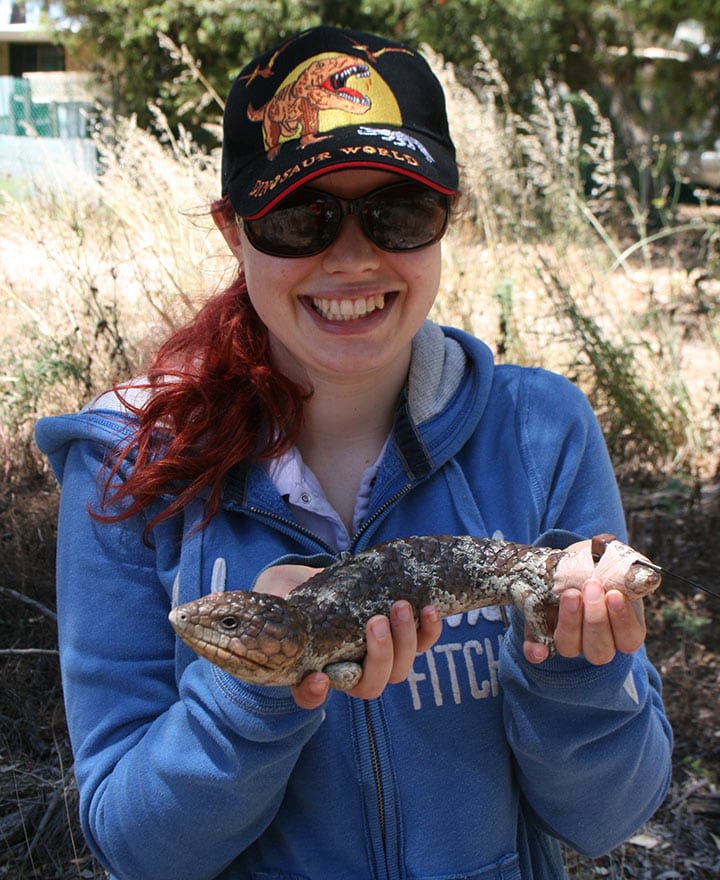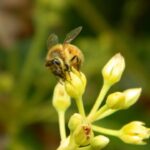A Curtin University PhD candidate is using GPS tracking technology to track dugites and bobtails across Perth suburbs to find out how urbanisation affects them.
After successfully fundraising more than $6,000 through a crowdsourcing campaign, PhD student Ashleigh Wolfe of the Department of Environment and Agriculture is currently tracking four bobtails and one dugite. She will increase this to ten bobtails and 20 dugites within the year, looking to see whether urban reptiles are able to adapt to changes in diet, habitat and behaviour compared to rural reptiles.
“Perth is a rapidly-growing city, and suburban backyards are becoming increasingly important to Perth’s wildlife, with snakes and lizards commonly found in unkempt gardens or eating spring blossoms,” Ms Wolfe said.
“Most people care about the lizards and snakes, and either let them live in the backyard or relocate them to nearby bushland. While we’d like to think relocated reptiles live a happy life in their new-found bush homes, it is possible they go straight back to a backyard where food and shelter are easy to come by.
“One of the bobtails I’m tracking in Lake Richmond, Rockingham, spends about half of his time in a caravan park neighbouring the bushland that I caught him in. He enjoys sleeping under the caravans and then going for long walks out to the lake’s edge.
“Meanwhile, a bobtail in Stirling spends most of her time hanging around one patch of bush, but then one day she decided to walk about 200m away and cool down on a particularly hot day in a fox hole, having a nice little nap – thankfully, the fox did not return before I removed her.”
As well as GPS tracking, Ms Wolfe is also conducting behavioural analyses, which involves measuring behavioural responses of the bobtails and snakes when approached, such as noting if the animals stay still, try to run away, or try to attack her.
She said she will also be asking the general public about their encounters with reptiles this past spring and summer.
“It will be really interesting comparing my results with the anecdotes of everyday people. The idea of this study is to see how people perceive reptiles in Perth, and what responses people have to them,” she said.
Ms Wolfe will be carrying out many other projects related to reptile behaviour, among them a citizen science project called #CurtinBobtails, where anyone who spots a bobtail at Curtin University is encouraged to take a photo and upload to social media. Ms Wolfe will then be able to track the animals by comparing photos using photo recognition software and noting down where the photos were taken.




